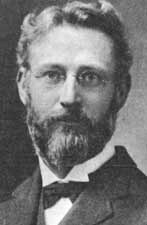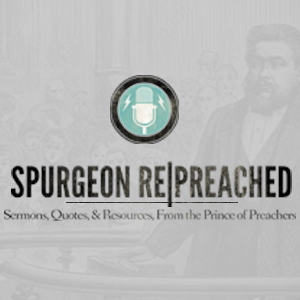‘Christ died for the ungodly.’—Romans 5:6.
CONSCIENCE in every man must tell him that God is just, and, as a necessary consequence, that God must punish sin. Then comes the question,—How can God be just, and yet the justifier of the ungodly? The answer is,—There is redemption in Christ Jesus. God is ‘just, and the justifier of him which believeth in Jesus.’ Believers are ‘now justified by his blood.’ In Jesus, God’s justice is vindicated to the very utmost, and yet his mercy shines forth in all its glory. The religion which denies the doctrine of the atonement is not of God, and never can succeed. It may hold together the few, who affect to be intellectual, because they are ignorant. The doctrine of the substitutionary sacrifice of our Lord Jesus Christ is the fundamental principle of the Christian religion. This is the only doctrine that teaches how justice can have its full dominion, and yet mercy exercise its sway. Here we have a full-orbed mercy and a fullorbed justice; and neither of them eclipses or casts a shadow over the other. All God’s attributes are at one at Calvary. We must stem the torrent of error by preaching ‘Jesus Christ and him crucified.’ As we clearly proclaim the gospel, ‘as the truth is in Jesus,’ we shall undermine every citadel of error and falsehood; and we must often preach the great central truths of the gospel, such as this, ‘In due time Christ died for the ungodly.’ ‘While we were yet sinners, Christ died for us.’ ‘For Christ also hath once suffered for sins, the just for the unjust, that he might bring us to God.’
~Charles Spurgeon~
C H Spurgeon’s Forgotten Early Sermons: A Companion to the New Park Street Pulpit–28 Sermons Compiled from the Sword and the Trowel (Leominster, Day One Publications, 2010), 57-58. Delivered on Thursday evening, 14 May 1857. Reported by Pastor T.W. Medhurst, Cardiff














Wolfgang Musculus – Like the Waters of a Gushing Fountain
11 Mar[4] But God, being rich in mercy, because of the great love with which he loved us, [5] even when we were dead in our trespasses, made us alive together with Christ—by grace you have been saved – Eph. 2:4-5
The riches of God that Paul refers to when he says that God is rich in mercy are wonderful and divine. In this world a rich person uses his wealth for his own good and comfort. Even if he gives some of it away to help others, he uses most of it for his own benefit. In contrast, the kind of wealth in which God is rich in mercy is not intended for his benefit but for ours. Mercy cannot benefit him in any way because he is not miserable, unhappy or in trouble and therefore does not need it. All the wealth that makes him rich in mercy is used up outside himself and flows into us rather like the waters of a gushing fountain. Such riches reflect the divine nature, whose attribute is always to have mercy and to pardon. In the world nobody gets rich by showing pity, giving, contributing and donating, but only by obtaining things. That is what the riches of this world are like. Let us therefore leave them to the children of this world and let ourselves be rich in mercy, following the example of our Father in heaven.
~Wolfgang Musculus~
Reformation Commentary on Scripture: Galatians, Ephesians (Downers Grove, IL; IVP Academic; 2012) p. 281-282.
Other Musculus Quotes at the Old Guys
Tags: Reformation Commentary on Scripture, Wolfgang Musculus